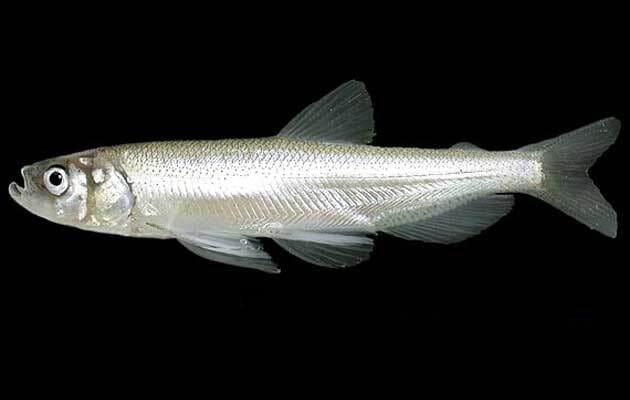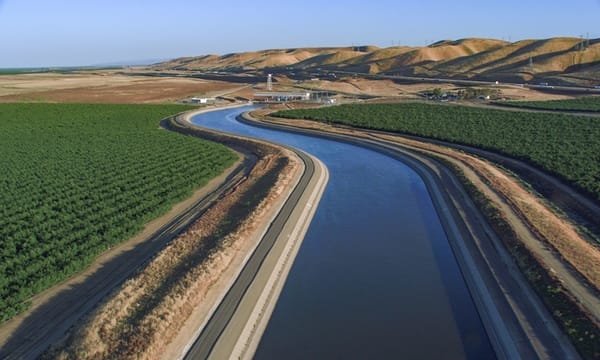SF Baykeeper Intends to Sue Feds for Missing Congressional Deadline to Protect Longfin Smelt

Oakland, California—Yet another fish in the San Francisco Bay-Delta Estuary is in deep trouble and an environmental advocacy organization intends to take legal action to prevent the species from becoming extinct.
On October 11, San Francisco Baykeeper put the US Fish and Wildlife Service on notice that the group intends to sue the agency for violating the Endangered Species Act by missing a Congressional deadline for the listing of the longfin smelt.
“The agency proposed listing the SF Bay-Delta population of longfin smelt as an endangered species in 2022, but it has failed to meet a deadline established by Congress in the ESA to make a final listing determination or to designate what counts as critical habitat for the imperiled fish,” the organization said in a statement.
The longfin smelt is a cousin of the Delta smelt, once the most abundant fish in the entire estuary and now virtually extinct in the wild. No Delta smelt have been found in the past five years of the California Department of Fish and Wildlife’s Fall Midwater Trawl (FMWT) survey on the Sacramento- San Joaquin River Delta: apps.wildlife.ca.gov/…
The abundance index, a relative measure of abundance, for the Longfin Smelt was 28 in 2020, 323 in 2021 and 403 in 2022. Those figures contrast with an index of 81,737 when the survey first began in 1967.
The agency’s proposal to list longfin smelt is the result of a series of petitions to and lawsuits against the agency, going back to 1992, according to the group. The most recent monitoring data for longfin smelt in San Francisco Bay reveals that populations have crashed more than 99 percent, compared to when monitoring first started in 1967.
The longfin smelt is an anadromous fish found in bay, estuary, and nearshore coastal environments of the Pacific Coast, from San Francisco Bay north to Cook Inlet, in south-central Alaska, according to the Notice. The San Francisco Bay Estuary (“Estuary”) supports the largest longfin smelt population in California, which the US Fish and Wildlife Service has determined is a distinct population segment (“DPS”)
“Longfin smelt were once one of the most abundant resident fishes in the Estuary and were fished commercially. In recent years, longfin smelt numbers have plummeted to record lows in the Estuary, and it is thought to be extirpated or nearing extirpation in other California estuaries,” the Baykeeper notice stated.
The group said the agency now has 60 days to make the necessary rulings in order to avoid another Baykeeper lawsuit to protect the fish.
“The Fish and Wildlife Service needs to do its job and stick to the legal deadlines,” said Baykeeper’s managing attorney, Eric Buescher. “As the Bay’s lawyers, Baykeeper is going to hold them accountable.”
”Baykeeper and its allies have had to sue the agency for decades to secure an endangered listing for longfin smelt,” Buescher added. “It’s disappointing—but unfortunately not surprising—that we may have to take legal action again to hold the agency to its mandate. Longfin smelt need federal protection to survive, and they are entitled to protection under the Endangered Species Act.”
The longfin smelt’s population crash is part of an ecosystem-wide collapse, the Pelagic Organism Decline (POD). Between 1967 and 2020, the state’s Fall Midwater Trawl abundance indices for striped bass, Delta smelt, longfin smelt, American shad, splittail and threadfin shad declined by 99.7, 100, 99.96, 67.9, 100, and 95%, respectively, according to CDFW data compiled by the California Sportfishing Protection Alliance.
Taken as five-year averages (1967-71 vs. 2016-20), the declines for striped bass, Delta smelt, longfin smelt, American shad, splittail and threadfin shad are 98.1, 99.8, 99.8, 26.2, 99.3 and 94.3 percent, respectively.
The decline of all of these fish species has been driven by massive water exports by the state and federal water projects to corporate agribusiness interests in the San Joaquin Valley and Southern California water agencies, combined with the proliferation of toxics, water pollution and invasive species in the estuary and Central Valley rivers.
San Francisco Baykeeper defends the Bay and its watershed against its biggest threats. Its team of lawyers, scientists, and advocates holds polluters and government agencies accountable and has achieved a winning record for over 30 years. Baykeeper is the only organization that regularly patrols the Bay by boat and drone to investigate pollution and harmful activities. For more information, visit: baykeeper.org.



